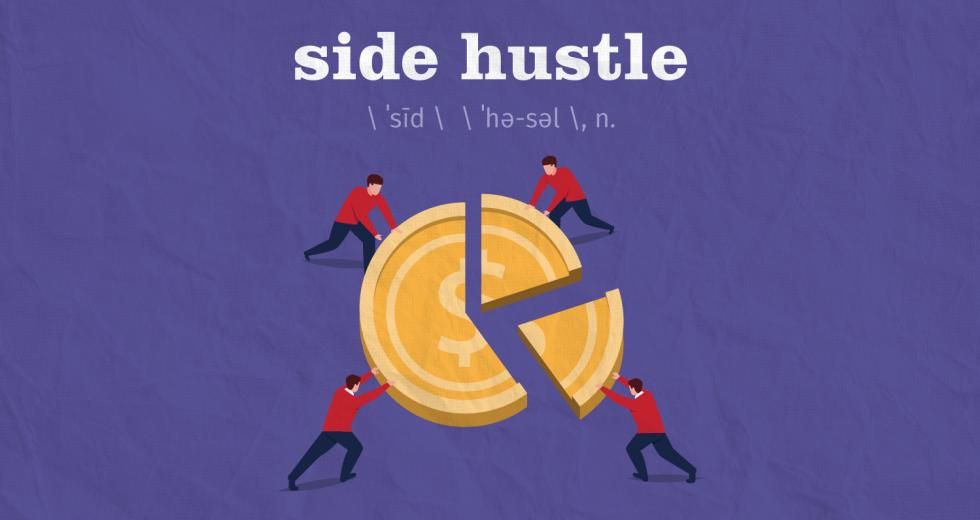A way to make income that allows flexibility, usually in addition to primary employment.
Imagine this: It’s Friday. After freelancing from a coffee shop all day, you hop in your car to drive for a rideshare during peak hours, before heading home to prepare your spare bedroom for the guests who booked it for the weekend.
Related: On-demand economy finds wide supply of regional entrepreneurs
Platforms like Fiverr, Etsy, Airbnb and Lyft facilitate this type of low stakes, flexible work and additional income, which some might call a side hustle. According to LinkedIn, freelancers made up a paltry 6 percent of the workforce in 1989, yet are expected to represent 43 percent of the workforce by 2020. More than 44 million Americans work more than one job, according to a survey by Bankrate, with millenials 18-26 years old the most likely age group to have a side hustle.
The Buzz
“People always talk about side hustles as if they’re some special thing, when really all they are is a side job or something you’re doing to generate income or for the passion of it,” says Chris Silva, current associate SEO manager at eHealth in Gold River, and a serial side hustler with a history of patching together supplemental gigs from ecommerce to Airbnb management.
Hustling by itself may have a negative connotation, but co-opting the term seems to mirror the millennial tendency to reclaim edgy words. “Passion project” or “side job” are less threatening alternatives, though side hustle is spiking up as the jargon du jour, according to a Google Trends comparison.
“The hustle part of side hustle refers to the volume and veracity of your effort,” Silva says. Among other endeavors, Silva transformed a college “beer money” venture flipping electronics online outside of his graduate classes into a brick-and-mortar thrift and second-hand repair store before selling it off post-graduation.
The Word
So what are best practices for using the phrase? “Know your audience — if you’re talking to a millennial, they’ll know what you’re talking about. If you’re talking to anyone else, just say side job or project,” Silva says.
Fifty years ago, the average worker might have expected to stay with one employer for the duration of their career, while today more people are working independently and piecing together income from multiple sources. As technology continues to change the way we work, we can file “side hustle” alongside jargon like “gig economy” until the next wave of buzzwords crops up.
Got a word thats been buzzing around your office? Tweet us @Comstocksmag with the hashtag #WhatstheBuzz



